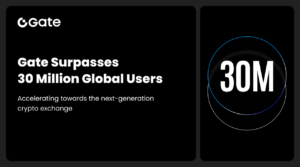CFTC Commissioner Explains The Agency’s Road Rights To Control Crypto Derivatives

The Commodity Futures Trading Commission (CFTC) can manage all derivatives and prospects exchanging US markets. In a proclamation delivered on Monday, the office’s Commissioner, Dawn D. Stump, professed to clear up disarray about the office’s job on digital currency-related items. As per Stump, the office has no administrative forces to direct products and protections as they might be grouped. In any case, all types of derivatives items are under the domain of the CFTC.
Daybreak DeBerry Stump, Commissioner of the Commodity Futures Trading Commission (CFTC), has tended to an inescapable “misconstruing about U.S. administrative depictions” which recommends that the organization is answerable for straightforwardly directing cryptographic forms of money. The absence of clearness on guidelines has incited the CFTC to remain against the SEC in issues verging on digital currencies. The chief featured the arrangements in the Commodity Exchange Act (CEA) and some Federal protections laws that give the organizations the power to manage derivatives items verging on resources labeled as protections. This will require firms or financial backers to look for greater clearness on the proposed resource or venture item.
.@CFTC Commissioner Dawn Stump emphasized that the agency only oversees futures and other derivatives products on commodities like cryptocurrencies, rather than commodities directly.@cheyenneligon reportshttps://t.co/TMYDhQPRE3
— CoinDesk (@CoinDesk) August 23, 2021
As per a show distributed on Monday, the meaning of a commodity given by the Commodity Exchange Act (CEA) is very expansive, so characterizing specific cryptographic money as such would be “average” today. In any case, regardless of whether an advanced resource is formally considered a commodity, this actually doesn’t imply that the CFTC is liable for controlling it. This is on the grounds that the organization just supervises fates, trades, and different derivatives dependent on wares. For instance, the CFTC will not manage items, for example, dairy cattle or flammable gas when they are straightforwardly exchanged on cash markets. The controller should step in, in any case, with regards to derivatives that depend on these items.
Derivatives are a kind of monetary agreement whose worth depends on a basic resource, including products, or a benchmark. Maybe the most notable illustration of a subsidiary is a prospects contract. Prospects let theorists sell a resource at a particular cost and date later on and which should be satisfied on their lapse date. On the off chance that, for instance, the holder accepts the cost of the resource will drop before the termination date, then, at that point, they would purchase a prospects contract guaranteeing the current cost and staying away from any significant misfortunes later on.
On account of Bitcoin (BTC) prospects, the crypto is a commodity that is being exchanged, and the CFTC will manage such agreements on trades that it directs. Notwithstanding, the office has no administrative authority over Bitcoin exchanging or the actual coin. Chief Stump repeated that the organization has the ability to complete implementation activities on firms that disregard the CEA or any of its guidelines. A striking model is the Seychelles-based digital money trade, BitMEX, which as of late went into a $100 million repayment with the CFTC and Financial Crimes Enforcement Network (FinCEN).
Click here for more Crypto-related news
***








